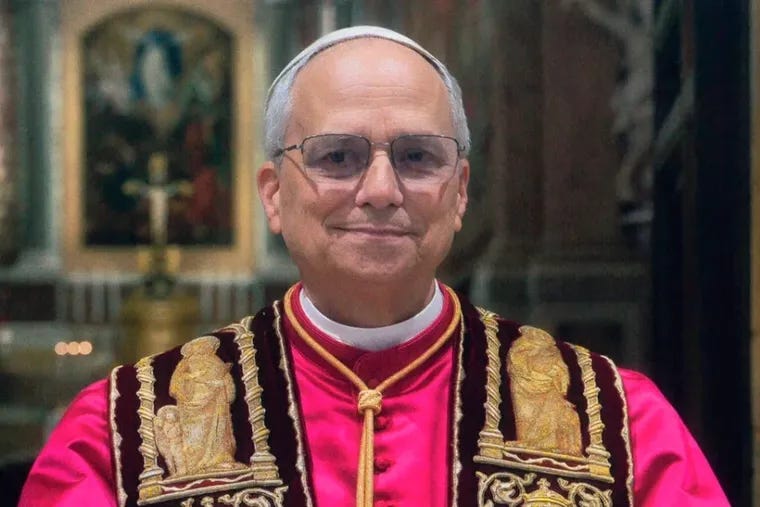Keys, Cross & Inbox
Five medieval lessons from St Bernard to keep Pope Leo XIV—and every new leader—grounded when the pressure hits
White smoke. A new name, Leo,—his name—reverberated across the square. And within minutes, the new Pope’s inbox flooded with well-wishes and advice.
Leadership is like that. Everyone wants a piece of you the moment you step up. The real test isn’t the noise. It’s whether you can stay anchored to yourself, to God, when the noise gets loud.
A Letter that became a Playbook
Nine hundred years ago, the question was much the same. In 1149, Bernard of Clairvaux (1090-1153) sent a letter of counsel to the newly elected Pope Eugene III (1145-1153). His counsel became a handbook: De consideratione. Whether you are the Pope or have just accepted a new leadership role, Bernard’s five practical tips are still helpful.
Being pope is a calling, a task, and a burden, wrote Bernard. Unless you take time to reflect, there are many superficial matters in which a leader can lose himself. Do not listen too much to your advisors, but look for true wisdom. To find this wisdom, you need more time to contemplate. Any Christian who takes their calling seriously knows that true wisdom must be built on the love of God.
Five Moves for Leaders under Fire
Bernard’s counsel can be summed up in five key thoughts, five leadership qualities:
1. Prune busyness. Your success is not determined by how much you can do, but whether you do so wisely and justly.
2. Schedule silence. The busier your day, the more time for silence you need to make.
3. Lead with love. Do not let your former enemies get under your skin. You are the pope now. Lead by example.
4. Serve first. Serve God and serve the needs of the people in your care. Imitate the example of Christ. He said that whoever wants to be great must be a servant (Matt. 20:26).
5. Stay human. In the end, there is only so much you can do. You will make mistakes. You will have some successes. Do not take all the praises you get too seriously. Do not worry about all the criticism.
Papally Recommended for Everyone
In the Middle Ages Bernard’s booklet was read in monasteries. Later it slipped into relative obscurity. However, Pope Benedict XVI (2005‑2013) called it “a mirror for spiritual leadership.” The late Pope Francis (2013‑2025) often alluded to the same themes when he stressed simplicity, silence, the priority of prayer and discernment, and humility.
Even if you are not a pope, the booklet can guide you in maintaining a healthy inner life under high pressure. That is why De consideratione remains relevant and practical for our time. For the new pope, and for all of us.
Take the First Step
Choose one of Bernard’s five tonight. Block ten silent minutes, write a thank‑you note to a critic, or delete a meeting that doesn’t need you. Your first step as servus servorum—or marketing manager—starts here.
Picture: part of the official portrait of Pope Leo XIV released by Vatican Media





I tried your suggestion last week on taking a few days through chapter 6 of the Gospel. I found it very worthwhile. Thanks for the follow up suggestions!